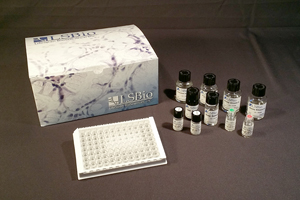Login
Registration enables users to use special features of this website, such as past
order histories, retained contact details for faster checkout, review submissions, and special promotions.
order histories, retained contact details for faster checkout, review submissions, and special promotions.
Forgot password?
Registration enables users to use special features of this website, such as past
order histories, retained contact details for faster checkout, review submissions, and special promotions.
order histories, retained contact details for faster checkout, review submissions, and special promotions.
Quick Order
Products
Antibodies
ELISA and Assay Kits
Research Areas
Infectious Disease
Resources
Purchasing
Reference Material
Contact Us
Location
Corporate Headquarters
Vector Laboratories, Inc.
6737 Mowry Ave
Newark, CA 94560
United States
Telephone Numbers
Customer Service: (800) 227-6666 / (650) 697-3600
Contact Us
Additional Contact Details
Login
Registration enables users to use special features of this website, such as past
order histories, retained contact details for faster checkout, review submissions, and special promotions.
order histories, retained contact details for faster checkout, review submissions, and special promotions.
Forgot password?
Registration enables users to use special features of this website, such as past
order histories, retained contact details for faster checkout, review submissions, and special promotions.
order histories, retained contact details for faster checkout, review submissions, and special promotions.
Quick Order
LSBio Custom ELISA Kits

ELISA (enzyme-linked immunosorbent assay) kits are a fast and cost-effective way to quantitate specific target antigens in samples of serum, plasma, cell culture medium, cell lysates,
tissue homogenates, urine and more. Additionally, phospho-specific ELISA kits enable researchers to quantitate the activation state of specific proteins associated with important
biological pathways.
Each kit is ready-to-use with all the necessary reagents and a clear, concise protocol that will step you through the process, from sample preparation to analysis of the results.
All LSBio Custom kits have been predesigned and all necessary components, including antibodies and standards have been identified. Upon receiving a custom kit order, the kit will be assembled and quality control tested before being shipped out. Kit assembly and testing typically takes 4 to 6 weeks. In most cases the final kit is based on the Sandwich assay principle, with a few being Competitive EIA based (see details for each below). Specifications such as Range, Sensitivity, and Precision are defined upon completion. In the event that the custom kit cannot be successfully developed with 6 weeks of the order date, the customer will be notified and the order canceled at no cost.
Each kit is ready-to-use with all the necessary reagents and a clear, concise protocol that will step you through the process, from sample preparation to analysis of the results.
All LSBio Custom kits have been predesigned and all necessary components, including antibodies and standards have been identified. Upon receiving a custom kit order, the kit will be assembled and quality control tested before being shipped out. Kit assembly and testing typically takes 4 to 6 weeks. In most cases the final kit is based on the Sandwich assay principle, with a few being Competitive EIA based (see details for each below). Specifications such as Range, Sensitivity, and Precision are defined upon completion. In the event that the custom kit cannot be successfully developed with 6 weeks of the order date, the customer will be notified and the order canceled at no cost.
Features:
- Ready-to-use kit includes all necessary reagents
- Available for a broad selection of target antigens
- Suitable for serum, plasma, cell culture medium, cell lysates, tissue homogenates, urine and more
- Suitable for serum, plasma, and culture medium
- Multi-species reactivity (human, mouse, and rat)
- Excellent sensitivity, specificity, and reproducibility
- Built on standard 96-well microtiter format
- 450 nm colorimetric detection
Kit Components:
- Target Antigen Positive Control Standard
- 96-well microliter strip plate pre-coated with Capture Antibody
- Sample Diluent
- Biotinylated Detection Antibody
- Wash Buffers
- Streptavidin/HRP Complex Solution
- TMB Substrate
- Stop Solution
- Adhesive Plate Sealers
- Instruction Manual
The Sandwich Assay Protocol

Each well of the supplied microtiter plate has been pre-coated with a target specific capture antibody.
Standards or samples are added to the wells and the target antigen binds to the capture antibody.
Unbound Standard or sample is washed away. A biotin-conjugated detection antibody is then added which binds to the captured antigen.
Unbound detection antibody is washed away. An Avidin-Horseradish Peroxidase (HRP) conjugate is then added which binds to the biotin.
Unbound Avidin-HRP conjugate is washed away. A TMB substrate is then added which reacts with the HRP enzyme resulting in color development.
A sulfuric acid stop solution is added to terminate color development reaction and then the optical density (OD) of the well is measured at a wavelength of 450 nm ± 2 nm.
The OD of an unknown sample can then be compared to an OD standard curve generated using known antigen concentrations in order to determine its antigen concentration.
The Competition Assay Protocol

Each well of the supplied microtiter plate has been pre-coated with a target specific capture antibody.
Standards or samples are added to the wells as well as a fixed quantity of Horseradish Peroxidase (HRP)-conjugated detection antibody.
The free antigens (in the standards or samples) and antigens bound to the plate compete to bind to the detection antibody.
All but the bound HRP-conjugated detection antibody is washed away. A TMB substrate is then added which reacts with the HRP enzyme resulting in color development.
A sulfuric acid stop solution is added to terminate color development reaction and then the optical density (OD) of the well is measured at a wavelength of 450 nm ± 2 nm.
The OD of an unknown sample can then be compared to an OD standard curve generated using known antigen concentrations in order to determine its antigen concentration.
In contract to typical Sandwich ELISA assays, in competition assay the greater the amount of antigen in the sample, the lower the color development and optical density reading.









